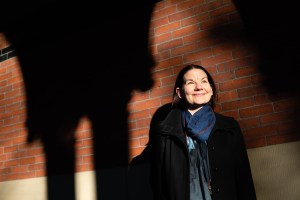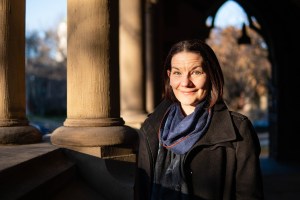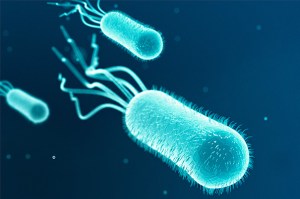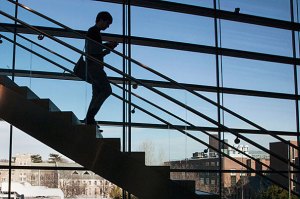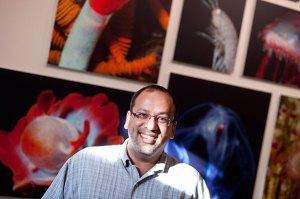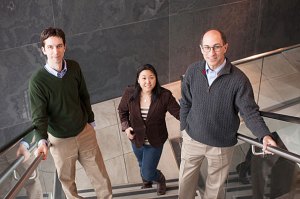Tag: Microbes
-
Science & Tech
2 very different microbes immune to the same viruses? Scientists were puzzled.
Genomic analysis suggests host diversity is far greater than previously thought.
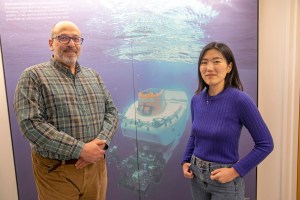
-
Science & Tech
The ‘right’ diet
Professor Emily Balskus and her team have identified an entirely new class of enzymes that degrade chemicals essential for neurological health, but also help digest foods like nuts, berries, and tea, releasing nutrients that may impact human health.
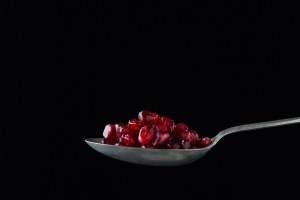
-
Campus & Community
Harvard microbe hunter wins Blavatnik Award
Emily Balskus will be honored on Sept. 23 with the Blavatnik National Award for Young Scientists for her work in tracking never-before-seen chemistry to specific bacteria in the human gut.
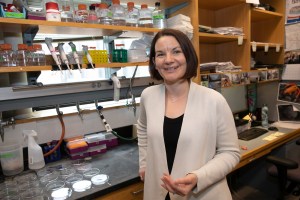
-
Health
Probiotic hydrogels heal gut wounds that other treatments can’t reach
Harvard researchers have developed hydrogels that can be produced from bacterial cultures and applied to intestinal surfaces for faster wound healing.
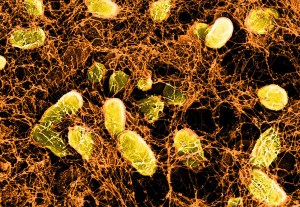
-
Science & Tech
Spreading seeds of life
Scientists at the Institute for Theory and Computation have made a comprehensive calculation suggesting that panspermia could happen, and have found that as many as 10 trillion asteroid-sized objects might exist that carry life.
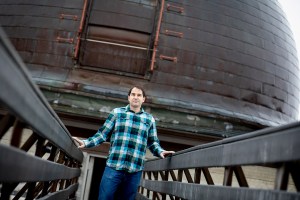
-
Science & Tech
Carbon consumers
Natural lab holds promise to transform understanding of deep-ocean carbon cycling, says Professor Peter Girguis.
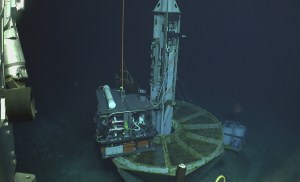
-
Science & Tech
Microbes by the mile
Exhibit at the Harvard Museum of Natural History shows the beauty and utility of microbes.
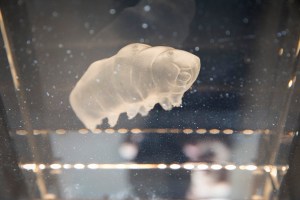
-
Health
Life of the party
A festival at the Harvard Museum of Natural History will feature these photos capturing an “invisible” world in all its glory.
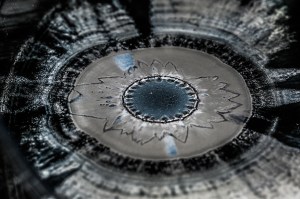
-
Health
Invisible world comes to light
Harvard Museum of Natural History brings art and science together as two Harvard scientists capture the “invisible,” and stunningly beautiful, life force that is everywhere: microbes.
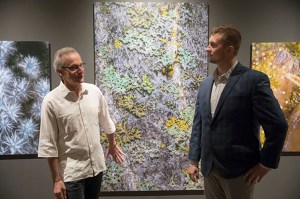
-
Health
Gut details
New findings have the potential to help researchers more accurately identify microbiome enzymes and quantify their relative abundance.
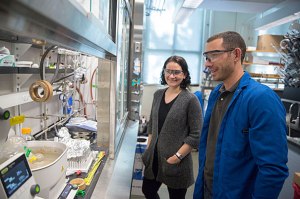
-
Health
Cheese-based research
Bauer Fellow Rachel Dutton has identified three general types of microbial communities that live on cheese, opening the door to using each as a “model” community for the study of whether and how various microbes and fungi compete or cooperate as they form communities, as well as what molecules and mechanisms are involved in the…
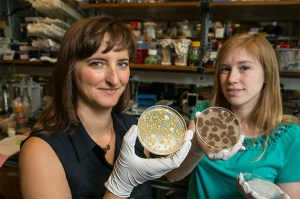
-
Health
Your gut’s what you eat, too
A new Harvard study shows that, in as little as a day, diet can alter the population of microbes in the gut – particularly those that tolerate bile – as well as the types of genes expressed by gut bacteria.
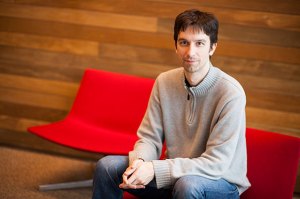
-
Health
Bacterial blockade
Harvard researchers have identified a pair of genes that appear to be responsible for allowing a specific strain of bacteria in the human gut to break down Lanoxin — a widely prescribed cardiac drug — into an inactive compound, as well as a possible way to turn the process off.
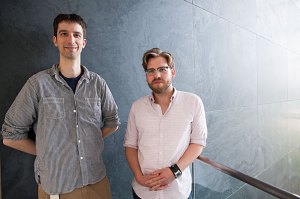
-
Health
Synthetic future
In the synthetic biology lab of Professor Pamela Silver, researchers are looking for ways to make biological engineering faster, cheaper, and more predictable.
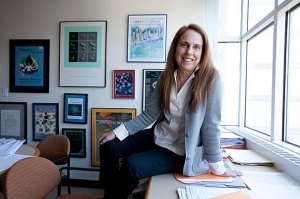
-
Science & Tech
When microbes make the food
A Harvard Summer School class spurs learning through food, by examining how microbes — bacteria and fungi — can help as well as harm when they get into food, doing much of the work preparing cheeses, beer, soy sauce, and even chocolate.
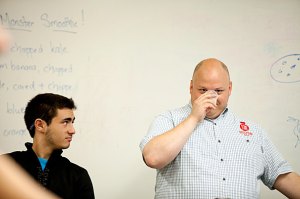
-
Health
My microbes
A new study reports that the superabundance of microbial life lining our GI tracts has co-evolved with us. These bacteria, which are essential for a healthy immune system, are ultimately our evolutionary partners.
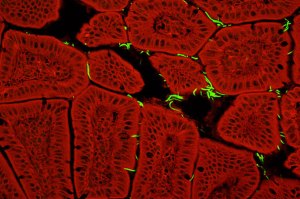
-
Health
Gauging the effects of the BP spill
Research into the effects of last year’s massive BP oil spill in the Gulf of Mexico highlights the flexibility of the community of microbes living in the ocean’s depths.
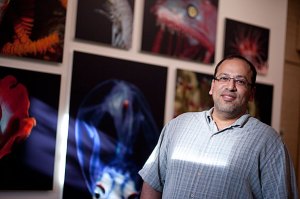
-
Science & Tech
Tut, tut!
Ralph Mitchell, a Harvard professor and authority on cultural heritage microbiology, investigates “fingerprints” left on the walls of Egyptian King Tutankhamen’s tomb by ancient microbes.

-
Health
Earthly extremes hint to life elsewhere
Scientists are examining single-celled organisms in extreme environments for clues to what life might look like on the myriad planets being discovered in the universe.

-
Science & Tech
Microbes to the rescue
Study says microbes may consume far more gaseous waste from gulf oil spill than previously believed.
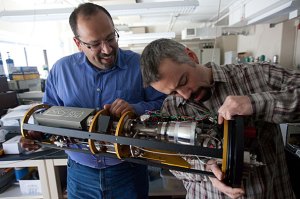
-
Campus & Community
Surrendering their secrets
Ann Pearson, professor of biogeochemistry, uses chemistry to understand ancient biology.
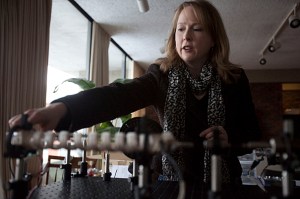
-
Campus & Community
Earth’s ‘Boring Billion’ Years Blamed on Sulfur-Loving Microbes
“If we really want to understand what’s happed in the history of Earth, we really have to understand this cross talk between the physical and biological processes,” says study coauthor Andrew Knoll of Harvard University.



